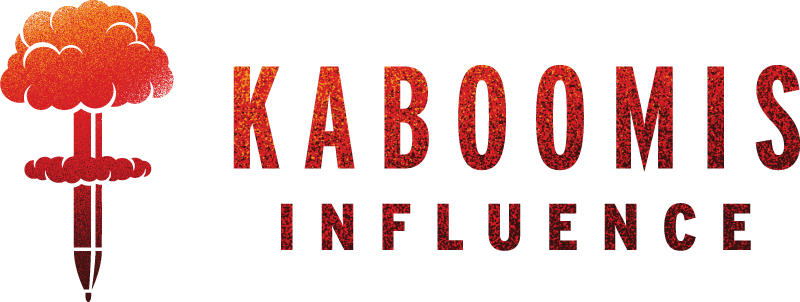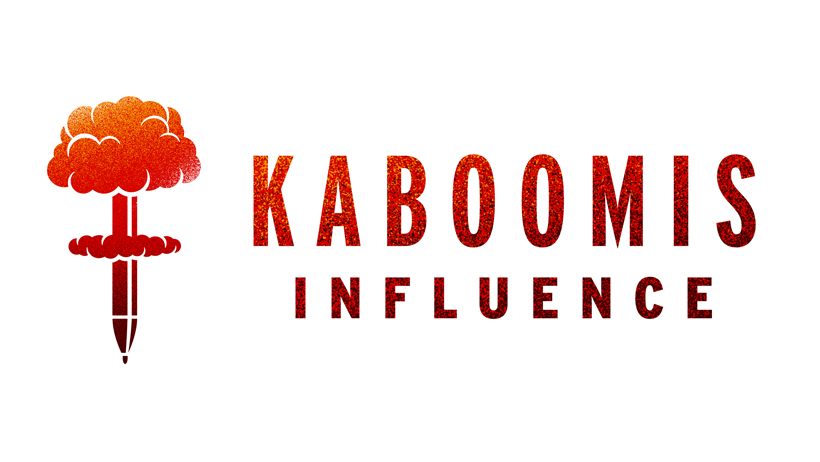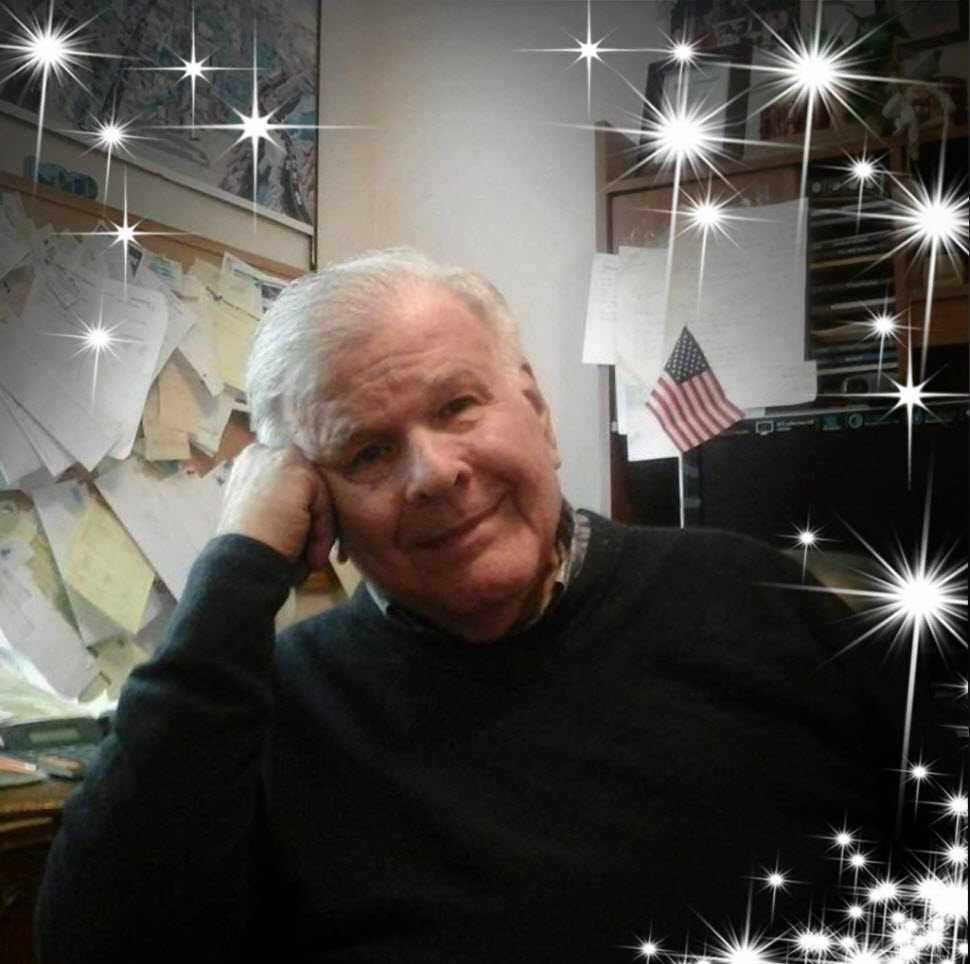
Bob Gaines has had a legendary copywriting career and here’s the amazing part: he’s still writing copy at age 89!
That’s right–Gaines has been writing sales copy for over 65 years.
I have been “Facebooks friends” with Bob Gaines for a few years, and over time I began to notice how much wisdom Gaines has accumulated through his lifetime. He is a likable guy, but also speaks his mind, and is not shy about expressing his views on many subjects.
But Gaines doesn’t self promote his copywriting services nor share a lot about his past copywriting career, which is why I decided to call him and find out his story.
Because I knew he probably has an amazing story to tell–and he did.
So I recorded the audio of our 96 minute interview, and decided have it transcribed.
Please enjoy this Bob Gaines: Legendary Copywriting Career interview…his story needed to be told, as it is one of those “American Dream” stories filled with ups and downs, challenges and triumphs.
This is Part 1, where Gaines shares his story. In Parts 2 and 3 (Coming soon! I promise!), I begin asking Bob questions about his copywriting craft–his thought process, how he works, and we get into more specifics about his work.
Alright, here we go!
A Copywriting Career for the Ages: The Bob Gaines Story
MKL: First of all, I would love to hear your story. Can you tell us how you became a copywriter? What made you want to be a copywriter?
BG: First off, I’m was a lousy student both in elementary school and high school in New York that’s one of the worst high schools in New York.
But two things that I can kind of do better than other kids, I can write a little and I can draw a little. And I remember, I was going to elementary school, I’m a lousy student, I had one of those attention deficit things I think, and I was always daydreaming.
BG: But nevertheless, the war was on and I was short for my age. So we had like five rows of students. I was in the fifth row, last seat and the teacher… I had a teacher in the 8th grade who was a man in probably in his mid-seventies but a very patriotic American.
The war was in its dwindling stages, so as a composition activity every once in a while, he’d have the kids write a composition about what the war meant to them.
And this one particular day, I remember he had all the kids write a composition. He started from the first row and he said, “Mary Smith, tell me what the war means to you.” And she stood up and read her little composition and said, “Well, my father’s in the army and I hope he comes back soon and I hope he gets Hitler.” And he said, “Very good Mary.” Next he would go, “Johnny go.” And Johnny said, “My uncle Sid is overseas and I know he’s anxious to get to those Japs and he’s gonna do a good job.” And he said, “Thanks Johnny.” Then he went around to all the kids and all the compositions were basically the same.
BG: So, I somehow didn’t see language as they did and when he called on me, he said, “Ok Robert, read yours.” And before he said that he said, “Ok students, this is how it should have been written.” Which of course, made every kid in that class hate me.
But nevertheless, you know, I read my composition and I said, “It was two-thirty AM in Aerodrome number six, 14 miles behind enemy lines. I was behind the white cliffs of Dover. Twenty-seven B-24’s were lined up for a raid over Munich. Each one was manned by a pilot who had it in his mind to destroy as much Nazi war planes and munitions as possible.”
And I read this composition. And there was my teacher, I remember, he was Mr. Draddy, standing there holding his vest and looking at me proudly. And then he says, “Ok, thank you, Robert.” And that was one of the things I could do well.
BG: So, when I graduated, I remember I barely graduated. I got lousy marks, but I also got the art award, which was another nice thing Mrs. Kalish our art teacher… there were two or three others that could draw better than me… she gave me an art award. I was in the assembly at graduation and they read my name for the art award. I remember I slunk down in my seat. And she said, “Now Robert, you go down and get your art award.” So, I went down and got my art award.
I went on to high school. I picked out a high school that had drafting as a specialty ‘cuz I thought I could draw well and maybe I could become a draftsman. Well I was into that for about two weeks and I hated it. But somehow, I graduated, and I was out in the world.
BG: And my first job was for a merchandising company that had, I think, 40 stores. And I was in the mailroom.
And I remember the secretary of the president of the company came into us one day. And we had a machine where we could duplicate layouts. Then they would send them to the various stores where they could run them in their stores and make mats. They used to use mats in those days.
Anyway, she said to us, “The president’s son, his dog got hit by a car and the kid was absolutely devastated. And in order to try and make him feel better they told him to write little bit about it and maybe to draw a picture of his dog,” and she gave it to us… the writing and this little picture the he drew. “Maybe you can do something and staple it and make it look like a little book or something.” Somehow it wound up in my hands, so I took the kid’s description of how he felt and how it happened.
I typed it up and edited it slightly, so it was easier to read. I took the picture of his dog and I reworked it so it looked more like a dog. I ran it off and put it in a little booklet form, stapled it, and brought it into the secretary. And she, said, “Thank you very much.” And to make a long story short, two weeks later I was promoted to the advertising department, which was right in the next room.
BG: So, there I was. I was doing what they used to do in those days, paste ups, where they took photographs and pasted them down to boards with the type already set.
And from that they made the mats. The mats were sent to the stores. The stores ran them in their particular cities. At any rate, that was my first taste of advertising. I was there for a couple of years and I left to go into active duty in the army.
When I came out, I went through a series of jobs, which took me into little ad agencies, and I worked briefly at Bloomingdale’s as assistant to the production manager in their downstairs store. Eventually, I was promoted to production manager of branch store advertising upstairs. Meanwhile, all along I was picking up little bits of advertising… how you did it. I learned how to spec type and I ran a lot of copy.
Eventually, I left there and went to a series of small ad agencies, from one to another. Finally, I made a short stop in the insurance industry, the New York Life Insurance Company, which I also hated, but I was there long enough to learn how to sell. How to motivate people to want to buy a policy. I always remembered those things.
BG: Well as time went on, I got married and had to settle down a bit.
I looked for a job and I had two offers. One was for an insurance company, which I certainly didn’t want even though it paid a little more money. And the other one was for a company called Oxford Book Company.
They published these little Regents Review books. I don’t know if you’ve ever seen them but here in New York they included Regents…copies of the Regents tests, which students had to take in order to graduate.
I literally sold them through the mail. I was hired and my salary was $70/week. They told me, if you do well in six weeks, we’ll raise your salary to $75/week. So there I was, hired. I was now the advertising manager of this little company.
So I started to design some layouts and write some copy here and there. To make a long story short, in six weeks I got a raise, not to $75/week, but $80/week, which was the raise I was most proud of all my life. Well I was there for a while… actually for nine years.
BG: I went onto General Learning Corporation, which was owned by Time Life Books and General Electric.
I was there as assistant to the advertising manager. There I did all kinds of things like scheduling the ads, and helping him pick out the various educational media.
There were a lot of magazines, publications which catered to teachers, etc. And they advertised their books and things. That was my job. But while I was there, I just took it upon by myself… in as much as I worked for Oxford Book Company… to pick out one of their supplemental materials and do a brochure. I designed the brochure on my own time and brought it into the advertising manager. He looked at it and kinda pooh-poohed it and stuck it in his drawer.
Well what happened next was maybe the turning point in my career. You still with me Matthew?
MKL: Oh yeah, I’m still here. 🙂
BG: We were owned by, as I said, Time Life Books and General Electric.
General Electric had sent down John Backe to be the new marketing manager. He later became the president of CBS, the great CBS, and full president years later. Anyway, on one particular day, my boss was out with a bad back, but I was in the office.
It was like a Monday… no, it was a Friday, I’m sorry. And he came down and introduced himself. He said his name was John Backe and he just wanted to meet the people, etc, etc. He said to me, “What do you do.” I said, “Well, I’m the assistant to the ad manager. I schedule ads and I pick out the media.” He said, “Interesting. What do did you do before.” I said, “I worked on this company called Oxford Book Company and I used to actually sell books through the mail.” So he said, “You actually sold books through the mail? You can do that?” I said, “Yeah, direct mail, yeah sure.” He said, “No kidding? Very interesting. I’m glad met you.”
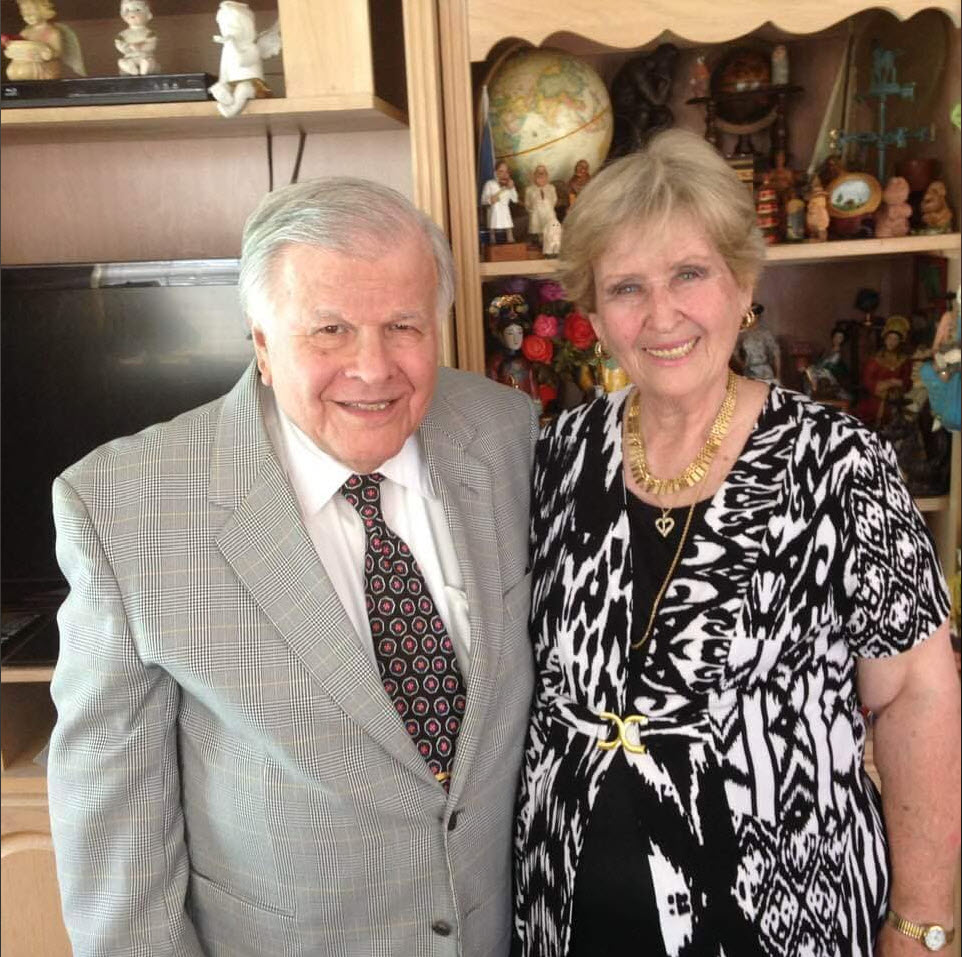
BG: Well the following Monday my boss was back in and they had a manager’s meeting.
And this was in their Morristown headquarters. It was also the headquarters for one of their divisions; the Eastern Division, their Library Division, they had one other division there, and my boss.
They were all sitting in. Word came down I should walk down to this meeting. I came in and John Backe says to all of them, “You know Bob Gaines, don’t you?” They all nodded their heads, you know… yeah, yeah, yeah. He said, “Well I spoke to Bob last week and he told me something interesting. Bob said he actually sold books through the direct mail. Tell us about it Bob.” I said, “Yeah, I sold books through the mail and at times I sold supplemental materials through the mail… you can do that.” One of the salesmen said, “Yeah, but all of our territories are covered by adoption requirements.” You know, all the books they sold had to be adopted in those states in order for schools to buy them. I interrupted and said, “No, not for supplemental materials. There’s no adoption required.” So, John Backe turned around to them and he said, “What do you think about Bob being able to sell supplemental materials through direct mail?”
I swear, they all laughed for 5 minutes! And I was kind of embarrassed. John Backe thanked me, and I went back to my office. When my boss came back, he didn’t speak to me for two days.
BG: At any rate, word came down that I should go to the Toronto Direct Mail Institute to receive further training.
And there in Toronto was a guy… I don’t know if you ever heard of him, his name was Edwin Mayer. And Ed Mayer was considered one of the absolute copywriting geniuses in the business. He was heading up this institute. In that institute there were many people who were later on headed famous corporations here in America. But I had a chance to rub shoulders with him.
We divided into teams. We worked on assignments preparing campaigns for fictional products. But it was one of the most enlightening experiences I’ve had. So, when I came back, I had to write a four-page report on what I learned, what I thought about, and I did, etc, etc.
Next thing I get word John Backe wants me to form my own little direct marketing… direct mail department… I guess it was called at one time. I was the Manager of Direct Mail to try and sell some of General Learning’s supplemental materials. He said pick anything you want and we’ll see how it goes. So I had given this layout…
MKL: [lost connection] Hey Bob, you suddenly cut out. You got cut off right as you were starting the new direct mail department.
BG: Right. He told me to pick out any product I wanted and I went back to the advertising manager and I said, “Do you remember that brochure I gave you about a year ago that I designed and you stuck in your drawer?” And he said, “Yes.” And I said, “Well that’s the one I’d like to mail.” So, he took it out and said, “All right, be my guest.”
I gave it to the advertising production manager there and she turned it into mechanicals… they called it mechanicals in those days, preparatory to printing. She did the mechanicals and the advertising manager saw it before even I did and sent them on to John Backe. And John Backe called us both down to his office and he said to my boss, “I understand you’re not happy with what Bob prepared. Why?” The advertising manager said, “Well, it’s got all kinds of blow-outs with the word ‘FREE’ on there and all kinds of other… it’s not us!”
And John Backe said, “Right now we’re bleeding money. I don’t care about us. I want to sell product. Here’s what I want you, as the advertising manager, to take the same product and prepare it – and I add, as you would prepare it – if you wanted to sell it. And Bob, I authorize you to mail this one and we’ll see how they do as both are mailed.” So we mailed, and to make a long story short…his produced $8,616 and mine produced $28,000. And that killed his credibility there forever.
BG: Now I was authorized to go ahead and do my own direct marketing, direct mail operation.
I was off and running. To make a long story short, the first year I lost about $2,000, which was not a very good start. But nevertheless, he didn’t give up on me. He let me go another year. Next year I made like 20 to 30 thousand. And from then on… I was there with the company for nine years… and when I left we were making millions.
BG: By now I had been invited to speak at some seminars on educational marketing.
I had a little bit of a reputation and I was being contacted by headhunters. I agreed to take a job in Connecticut for Traveler’s Insurance, which was taking over a publishing company in lieu of their not being able to pay money that they owed Traveler’s.
I was now their Marketing Director. I was working with the guy from Traveler’s they put in charge of the operation. I prepared profit and loss statements, which was something new to all these people, which amazed me because none of them worked with profit and loss statements. I had fortunately, when I was with General Learning, met a guy who showed me how important P&L statements were.
You had to know what a potential mailing was likely to pull. The maximum and the minimum. If the minimum was still ok… mail it. I always went with using that judgment. So I took the job and the job lasted for two months. I remember, Christmas week I got news that Traveler’s had changed their mind, decided not to go ahead with it and I was out of work.
BG: Now I had a couple of kids and was married.
I was really anxious about what I was going to do. I remember, from that point I was looking and speaking at seminars, as I said. I was approached by Bill Pesce, who had an ad agency in New York… Barbini, Pesce. He said he heard what I said [at the seminar] and wanted to give it a direct mail component and would I be interested in joining the company. I said yeah, if the salary was right.
I gave him the salary I was making before, which was $22,000 per year. He agreed to that and I went to work for him. About 23-24 weeks later, I became a partner in the company and was there for six years. It was a very interesting experience for me. I went from potential client to potential client and spoke to them about their direct mail needs, their profit and loss statements, some copy, etc, etc.
One of the clients was Ziff-Davis. I remember, I was getting tired of working for the company… had some differences with Bill Pesce, although he was a nice guy, now deceased.
BG: So, I went to a headhunter and told him I was looking for a job.
He sent me off, of all places, to Ziff-Davis. I really didn’t want to work with them because when I had him as a client, I really didn’t enjoy doing their stuff. But then when I went up there, right away I seemed to impress someone.
Next thing I know, I’m working for Ziff-Davis. Now my job is Circulation Promotion Director for 26 publications. It was a job which I was totally unprepared for. What the hell did I know about promoting circulation for 26 various magazines and newsletters. But there I was. I was there for three years. I designed a lot of stuff. It really worked very well and I stayed on there.
BG: My next job, I remember, I went to Direct Mass Marketing in New Rochelle.
There I had the opportunity to work with one of the most impressive copywriters that ever lived. A guy named Steve Brown. I was the copy guy there and my job… I’d write copy for their products and he would look at my stuff and give me any suggestions. He had a very quick mind. I worked there for a few years. At any rate, I continued to work and I wound up in another company for another one of the most impressive people that I ever worked with. A guy named Dave Reichberg, who once had the Reichberg-Ross Agency which was a very well-known, successful agency in its time.
I went there when they were in New Rochelle. I was their Creative Director. While I was there a few years, I wrote their stuff. They sold all kinds of memberships. I wrote the copy. The stuff worked, so it went on and on over the years.
BG: Eventually I wound up in California and I was there for, I guess, a half a year.
There I met a guy named Tony Brown, who was another very suave, shrewd guy. I had seen his advertising in one of the trades and he was looking for a Creative Director in California. I did a very ballsy thing. I sent him a message and said, “I saw your ad. I’m your man. I’m gonna be in Vegas on New Year’s Eve. If you’re interested in meeting me, meet me there and we’ll talk.”
So, he was in California of course, and I knew it was a short hop from Irvine, California… Orange County. Sure enough he said fine, I’ll met you. We met that morning… the morning of New Year’s Eve… at Bally’s Coffee Shop. And he said, “Why should I hire you?”
In those days I used to take eight or nine of my direct mail packages, put them in a 9X12 envelope and carry them with me. That’s all I took. I took the envelope, put it down on this table and said, “This is why.” And he looked at the stuff and he said, “Can you come out to Irvine and spend some time. I’d like you to meet my people.” I said, “Sure.”
BG: A week or two later I was out there with my wife and son.
He introduced me to all his staff out there. They seemed impressed. The next thing he asked me… he came back to our hotel… we were staying in a hotel, at an inn actually, where John Wayne used to stay when he was in California. Tony came out to see me on this Sunday. “Well,” he said. “All the people liked you and were impressed with you. I’d like you to come on board.” “Wait a minute,” I said. “I’m not ready to make that decision. Don’t forget, I have a home in Long Island. I have to sell that. It’s a big decision to make. And the conversation would have to be correct.” “Well”, he said. “I’d pay you $165, 000 per year.”
The lights went on in my head. I said, “I’ll have to let you know. I need a little time.” So, he said, “How much time do you need.” I said, “Well, I can check back with you next Friday after I get back.” I always made it a point to not make any decision right away.
BG: When I got back to New York, I waited and finally he called me.
He said, “You make up your mind?” I said, “Well, I’m still a little… still not sure.” And he said, “165? That’s not enough?” I said, “Well, I have to make sure there’s something after that if I succeed.” He said, “I’ll tell you what, I’ll pay you $65,000 in a bonus at the end of your contract. I guarantee you that, win or lose.” I said, “Ok, I’m on board.”
So, we started to try and sell our house. We lived in Baldwin on the water out here on Long Island. It was very hard to find a buyer in those days. We looked and looked and somehow just couldn’t find a buyer.
Meanwhile, we also were traveling back to Irvine in Orange County, California looking for a house there, assuming we were gonna move there. We also couldn’t find anything that quite pleased us. At any rate, in order to allow me to start working for them, they agreed to let me come out there, stay there a week, come home, stay a week in Long Island, go back, stay a week there. So every week I was flying back and forth from Irvine to Long Island, Long Island to Irvine. And I did that for six months.
At the end of six month, they contacted me, and they told me that they decided not to renew my contract and…
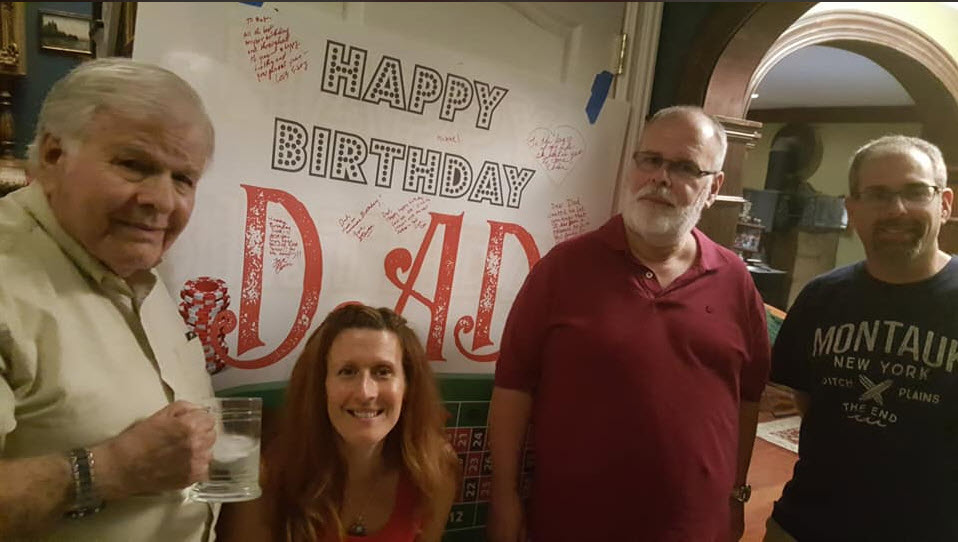
MKL: Hey, we lost you again.
BG: I don’t know what happened that time. At any rate, they didn’t renew my contract and I was now, more or less, on my own.
I decided I had to do something to make a living. I decided to do some direct marketing consulting. What I would do is go company to company and charge them $1,000 a recommendation and see what that would do for me. I found I was doing not bad. I was getting 5 or 6 of those a month, but 5 or 6 thousand dollars a month wasn’t going to carry all my expenses.
So, I had to do something more and decided I would do writing full-time. I’d go as a direct mail copywriter.
BG: I took you the long way… anyway, I was now looking for copywriting clients.
I would make it a point to attend all of the conferences and seminars. And in New York every year we had something called Direct Mail Day and I would simply… I would not even register… I would simply go in, stand at the top of the escalator and wait for faces that I recognized. I would approach them, shake their hands, and they’d say, “What are you doing?” Then I’d do the same thing I did in Vegas. I’d get them over to a table, empty out my 9X12 envelope. In many instances they’d say, “Ok, can you do this one for me, can you do that one for me?” I was picking up business.
I was picking up a lot of business.
And so my consulting career was launched. I’ve been doing that for about now, I guess, 25, 26 years. And that’s where I am. I’ve met a lot of very interesting people along the way. And it’s been a great experience.
MKL: Yeah, Bob that’s a really, really great history of the advertising industry in the United States. Really cool stuff there. I wanted to ask you about boldness. It sounds like it was a big factor in your career. How important is it to be bold?
End of Part 1 on Bob’s copywriting career. Stay tuned for Part 2 where Bob answers that question and a whole lot more.
